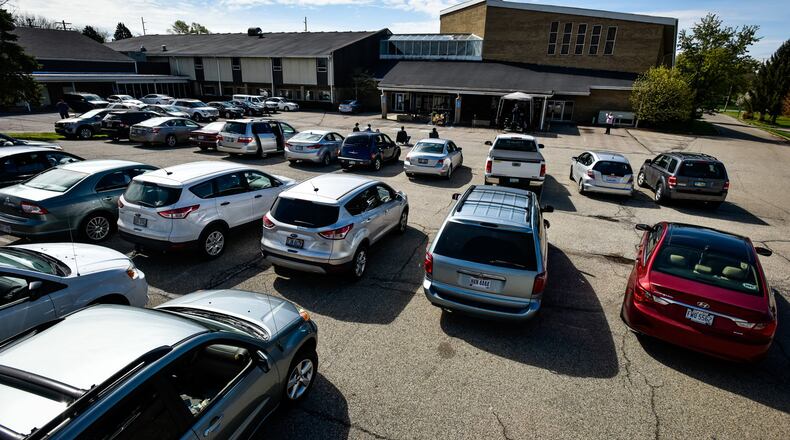The Rev. John Lewis, pastor of the Presbyterian Church of Hamilton, said “everyone is stepping up their game” as a result of the pandemic.
Lewis held a traditional and a contemporary worship service in each of the church’s two buildings every Sunday before the pandemic started. He said his church has also gone to live-streaming and using Facebook for services and has done some pre-recorded messages. He said he saw a need to purchase additional professional grade video equipment and started putting more into visual aids as well as improving the production quality of services.
Going forward, in addition to the improving the production quality, Lewis said he’s thinking about doing Wednesday previews or trailers for the coming Sunday services. He said it’s also increasing the amount of planning ahead.
Pastor Nathaniel Sorensen, of New Life Vineyard Church of Hamilton, said they have worked hard to get a viable live-streaming of their services. For Easter, Sorensen held a “drive-in” service and said they may do that again on occasion in the future.
He said the church is looking at other platforms such as ZOOM to hold small meetings, but is waiting until some security concerns are addressed. “We’re trying to get more online Facebook updates and encouraging people to call the elderly more consistently,” Sorensen said.
Shakila Ahmad, board chair emeritus of the Islamic Center of Greater Cincinnati in West Chester Twp., said she thinks everyone “has learned a lot and are still learning as the situation evolves. We need our faith and faith communities more than ever before.”
The Islamic Center is already live-streaming their services and are reaching out to those who may need help with groceries, or making N-95 mask covers for hospitals, helping first responders, and conducting food drives and providing other social services. Ahmad said everyone is learning how to do new things and maybe how to do them better. They are also hosting educational programs online.
Pastor Brad Rosenberg of the Tri-County Assembly of God in Fairfield, said his church has been live-streaming services since March 15 and are using social media and other virtual meeting platforms to stay touch with his congregation.
“We’re trying to stay in touch while we’re social distancing,” he said. “Our staff pastors are calling families each week to check up. The governor’s order has caused us to do church as we’ve never done before. We’re learning new things and catching the learning curve quickly.” Moving forward, Rosenberg said his church will work to strengthen their online presence significantly.
Rabbi Eric Slaton of Beth Israel Congregation in Hamilton said he’s “learned that Facebook is a wonderful way of connecting with people.” He said it can be tough using technology with older congregants and finding more ways to communicate with everyone of different ages. In addition, he is using more humorous things in his messaging.
Slaton said he’s learned to be more careful about being selective when sending messages and is focusing on the important things. He’s also looking for new technology to better reach his congregants and check on them.
The Rev. Michael Bailey of Faith United Church in Middletown said his church is also holding virtual services and checking on congregants through social media platforms such as Facebook Live and YouTube.
Calling the pandemic “God’s Time Out,” Bailey said. “There will be a time when God calls us back in.”
He said, “technology has allowed the church to operate in different times. I think this is a ‘new normal that is still in the making.”
About the Author

